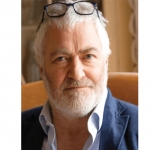Managing your Health and wellbeing: Advice from across the security sector
The pandemic has impacted everyone’s health and wellbeing and is an area of increasing focus. We have gathered views from across the security sector on how individuals have managed their own health and wellbeing.
We asked our contributors to share advice, resources and organisations they would recommend to support health and wellbeing.
Letitia Emeana, UK Chapter Chair & Board Director ASIS International UK Chapter 208
For ten years, I have been agile working and my workspace has been in my home, so I was mentally well prepared for how we are operating now. I already have a framework in place: I work normal office hours and my family know that once my door is closed, I am at work. I’m also very experienced using online tools like video conferencing and get a lot of energy working this way. I have a hearing impairment, so in some ways working remotely is better for me as I am particularly intuitive about how people speak and like to hear the intonations in people’s voices.
The advice I would give to maintain good mental health and wellbeing is to be self-aware and notice when you are going into a dip: not being able to sleep; waking up feeling tired; a racing mind; feeling anxious or on edge all the times – these are the signs to look out for. There are many tools available that can help. For example, the mindfulness and meditation app Headspace provides some excellent advice and tracks. I’m also a great believer in deep breathing techniques like Box breathing. The Thrive app is useful for managing stress and anxiety. Or you can just keep it simple and go for a walk during your break in the working day – this can make a big difference in how you feel.
Thinking about how the world will have changed permanently, I think the culture around coming to work when unwell will no longer be acceptable. People who are ill and potentially contagious will be expected to stay at home. Some businesses will continue with temperature screening – a high temperature is often a sign of infection.
I believe there will be much more empathy between organisations and their employees and seeing them in a holistic way. This will include people being much more comfortable talking about health and, especially, mental wellbeing.
Steve Heatley, City of London Police Chief Superintendent
 Having spent 27 years in policing, I have been involved in numerous challenging situations and witnessed many traumatic incidents. During my time as a front-line officer, I regularly had to deal with high pressure scenarios, which impacted on my mental health. Over the past ten years in my operational role, making strategic managerial decisions which shaped the direction of the organisation has understandably led me to feel varying levels of stress and anxiety also. Both scenarios leave a lasting legacy and effect on you.
Having spent 27 years in policing, I have been involved in numerous challenging situations and witnessed many traumatic incidents. During my time as a front-line officer, I regularly had to deal with high pressure scenarios, which impacted on my mental health. Over the past ten years in my operational role, making strategic managerial decisions which shaped the direction of the organisation has understandably led me to feel varying levels of stress and anxiety also. Both scenarios leave a lasting legacy and effect on you.
To enable me to manage the pressures of my role and remain an effective strategic leader, giving my best to the organisation and my staff, I maintain a healthy work-life balance. With the emergence of agile working and new technologies, I no longer have to be at my desk for twelve hours at a time. By being able to manage my day and be productive without always being in the workplace, I am able to take time to exercise and eat healthily. I limit the amount of alcohol I consume and during the week I have regular sleep patterns, which allow me to wake up fresh each day.
I am currently the strategic lead in the City of London Police for health and wellbeing. Our recently launched wellbeing strategy focuses on key areas such as physical, mental, emotional, team, financial and organisational wellbeing. In this post-pandemic era where uncertainty remains high, I believe it is more important than ever to support the wellbeing of our officers and staff.
Thomas A Jenkins MSyI DipGAI MinstAI MBLI, Principal Consultant and Director, ATAJ Secure

Personally, I feel fine, but I have been horrified at such a loss of life in a short space of time and the incomprehensible task our wonderful NHS have and are still undertaking. I did contract COVID-19 in January 2021 and suffered but was not hospitalised. It seems to have left me with side-effects which are still being investigated.
I was furloughed for virtually all of 2020 and support was constantly offered by my organisation during this spell. Then, like many others, I was offered voluntary redundancy in the summer. This suited me. I started my own business in January 2021 which gave me a new and exciting outlook on the situation and helped me stay mentally focused on what I enjoy doing.
As a family, we followed all the government restrictions and regularly watched the COVID updates. Several family members work in public services, including the NHS and education, and subsequently contracted COVID-19.
I always contact my GP first and follow NHS advice on their app and on the website. Reading the stories of others helped in making judgements on whether support was needed. We have a British spirit of carry on regardless!
The pandemic has clearly identified many areas we need to address in Health and Safety at work. We can improve the space around us and look out for ourselves and others. Sadly, the anti-government and anti-COVID restrictions followers have affected this progress but we will win the battle. We will always do our best and we are more aware now than ever.
Boguslawa Motylska MSc MSyI, Director at CPTED-UK Ltd, Member of the Security Institute, Design Council Expert
 The pandemic has affected me and my company on many levels. As a small business we adapted quickly and used it as an opportunity to change the way we work for the better.
The pandemic has affected me and my company on many levels. As a small business we adapted quickly and used it as an opportunity to change the way we work for the better.
Working from home made me feel isolated and miss the interaction with work colleagues. This, and the COVID exercise rules have inspired the Security Institute Running Club on Strava. Many people took up running during lockdown. Sharing the experience with others motivates me and makes running much more fun. The club has now got 28 members, nearly 4000 miles on the clock, and a few marathons under its belt.
Another positive outcome of the pandemic is reduced emission of carbon dioxide generated by transport. The average passenger vehicle emits about 411 grams of CO2 per mile. Many companies started to adopt the green agenda as a core value, and the pandemic allowed them to speed up the process. In CPTED-UK we minimise our travel by cutting out all unnecessary journeys and using sustainable transport where possible.
I do hope that a reduced commute will become a permanent change. My previous employer requested all staff to go back to the office post lockdown. For me the commute would generate 5kg of CO2 per day and there is no way I would have signed up for that.
Phil Ingram, Founder and Managing Editor of Grey Hare Media
 The pandemic has had a direct impact to some of my colleagues as they have caught the virus; most have had few to mild symptoms, but a few are suffering from the symptoms of long COVID and it is the realisation of this that has raised awareness around how serious this pandemic has been and is. Support is at the core of how we do business, so we have been in a fortunate position to keep doing what we always did but with the new regulations and advice issued by Public Health England.
The pandemic has had a direct impact to some of my colleagues as they have caught the virus; most have had few to mild symptoms, but a few are suffering from the symptoms of long COVID and it is the realisation of this that has raised awareness around how serious this pandemic has been and is. Support is at the core of how we do business, so we have been in a fortunate position to keep doing what we always did but with the new regulations and advice issued by Public Health England.
The advice we would offer is to monitor, prepare for and resource what is needed for the threats laid down by government through local resilience forums. The second piece of advice is to apply common sense. There has been too much discussion around conflicting advice when any confusion can easily be mitigated with a healthy dose of common sense.
The main change the pandemic has made is to prepare for the unexpected and ensure health and wellbeing remains at the core of our team.
Click here for more articles from ASIS
Click here for more articles from City of London Police
Click here for more articles from Security Institute
Click here for more articles from Phil Ingram


